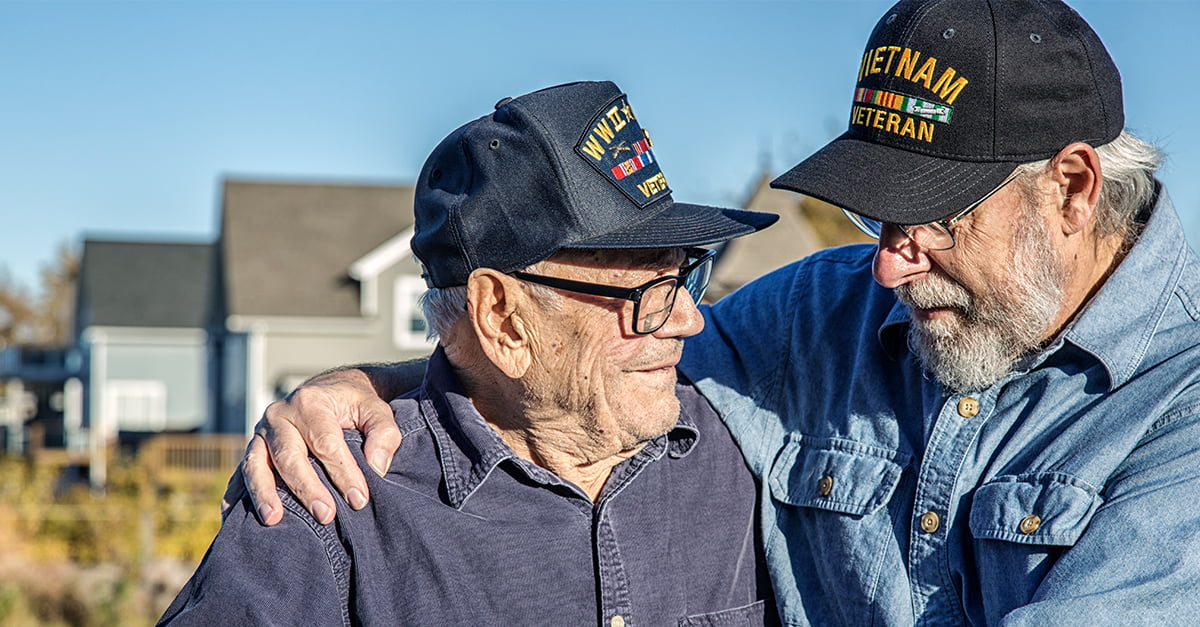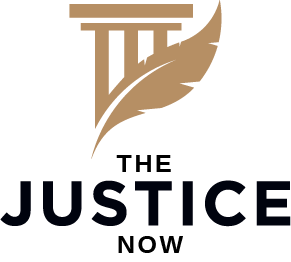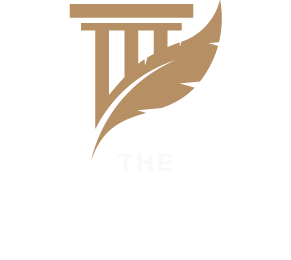Camp Lejeune Water Contamination Lawsuit is among the most discussed litigations in the United States. Because there are a vast number of plaintiffs involved in this lawsuit. Numerous changes and concerns are asked from time to time. Frequent inquiries we receive from customers are, "What is the Camp Lejeune Attorney Fee Cap."

While other law firms charge up to 40% of costs, we charge Camp Lejeune. Attorney fees are 20% or 25% of the total amount according to the stage the case has been resolved or settled.
Camp Lejeune Attorney Fees Should Be Capped At 20% or 25%
The Justice Now adheres to the caps on attorney fees for the Federal Tort Claims Act and the Camp Lejeune Justice Act in 2021.
In the past, historically, the Federal Tort Claims Act (FTCA) applied to negligence claims against the federal government. The FTCA restricts attorneys’ fees to up to 20% of settlements in administrative proceedings or 25% for litigation recovery.
Similar to the Law of Justice for Camp Lejeune, in 2021, it capped attorney fees at 20% or 25% of the amount that was recovered.
However, it is essential to note that the Camp Lejeune Justice Act of 2022, signed into law by President Biden on the 10th of August 2022, didn’t include the cap on attorney fees that were present in the version of 2021. This has created a lot of confusion, and many law firms now charge 40% of their costs for contingency or more.
To clarify the situation To clarify the issue, the government announced on September 20, 2023, that the attorney fee for Camp Lejeune settlements is capped at either 20% or 25%. The government aims to safeguard the financial interests of the affected veterans.
If your Camp Lejeune claim is resolved without litigation, The attorney’s fee is 20% of the total settlement. If the claim is resolved following filing an action, The attorney’s fee will be 25% of the total recovered amount.
THREE REASONS FOR CAPPING FEES AT 25%
The attorney fees for Camp Lejeune water contamination cases should be 20 or 25% based on three reasons.
- The Federal Tort Claims Act historically limits attorney fees to 20% or 25%. In the future, however, the Camp Lejeune Justice Act of 2022 integrates the claims process of FTCA.
- In 2021, the Camp Lejeune Justice Act stated that attorney fees are restricted to 20% or 25% of the total settlement. The provision was later stricken out of the Camp Lejeune Justice Act of 2022, but the language that incorporated the process for claiming under the FTCA was left.
- The Department of Justice and Navy have announced the attorney fee for Camp Lejeune settlements is capped at 20-25%.
The Camp Lejeune lawyers charge 20% and 25% lawyer’s fees based on whether the claim is settled without litigation. If we fail to obtain an award, you owe us no money or expenses.
To set up a free appointment with an attorney from The Justice Now, please give us a call (530) 201-4340 or click here.
THE FEDERAL TORT CLAIMS ACT CAPS ATTORNEY FEES
Historically, negligence claims brought by the Federal government have been made by the Federal Tort Claims Act (FTCA).
For instance, before the Camp Lejeune Justice Act (CLJA) was adopted into law, Camp Lejeune victims filed lawsuits against the federal government in the FTCA.
In most environmental tort cases where liability is unclear, law firms usually charge 40% as a contingency fee.
However, as per Section 2678 under the Federal Tort Claims Act, the attorney fees for tort cases brought against federal employees government can be capped at 20% or 25%, based on the severity of the trial.
Stage of Case | Attorney Fees |
Pre-Suit | 20 percent of the recovery |
After filing suit | 25 percent of the recovery |
*The Table of Attorney Fee Schedules under the FTCA
The relevant text of the FTCA is below:
HYPOTHETICAL #1 – YOUR CASE IS SETTLED BEFORE FILING A LAWSUIT
By Article 2678, FTCA, In the event that your claim is dealt with through administrative means (e.g. the Department of Defense presents the claim and settles the claim through organisational means), the attorney’s fees are capped at 20% of the total settlement.
In the example above, if you settled your case pre-litigation at $100,000.00, The attorney’s fee is $20,000.00.
HYPOTHETICAL #2 – YOU FILE A LAWSUIT
According to Section 2678 of FTCA, In the event that your claim is settled through settlement or a judgment following the submission of the lawsuit, the fee for a lawyer is capped at 25% of the total amount recovered.
If your case was resolved following filing a lawsuit worth $100,000.00, the attorney’s fee is $25,000.00.
THE CAMP LEJEUNE JUSTICE ACT OF 2022 INCORPORATES THE CLAIMS PROCESS OF THE FTCA
It is the Camp Lejeune Justice Act in Section 2 paragraph (g) encapsulates explicitly the legal procedure of the FTCA, which is described within 28, U.S. Code SS 2675:
That means Camp Lejeune claims have first to be presented at the JAG Office of the JAG. After that, the JAG has six months to resolve the claim administratively. If the issue still needs to be solved in six months, those who claim may file lawsuits in federal courts located in North Carolina.
Since the CLJA integrates the FTCA’s claim system and tort suits against federal authorities that have traditionally been filed under the FTCA, we consider the Camp Lejeune lawyer fees should be set at 25% or 20%.
THE CAMP LEJEUNE JUSTICE ACT OF 2021 LIMITED ATTORNEY FEES TO 20% OR 25%
The version of March 26, 2021, of the Camp Lejeune Justice Act [H.R. 2192], presented in the House of Representatives, specifically restricted attorneys’ fees to 20% or 25% by the FICA’s Section 2678:
The attorney fee clause has since been removed from the Senate’s 2022 version of this bill S.3176]. However, section 2(g) of the Camp Lejeune Justice Act, which includes the claims procedure of the FTCA, was included in the final legislation passed by Congress and enacted into law. Ultimately, Camp Lejeune’s attorney fees should be reduced by the “spirit” of the law.
In all cases, The Justice Now respects the FTCA and the original Version of CLJA. Therefore, we have Camp Lejeune attorney fees set at 20% or 25% of the amount recouped.
THE GOVERNMENT SAYS CAMP LEJEUNE ATTORNEY FEES ARE CAPPED AT 20% OR 25%
The JAG and DOJ released guidance on attorney fees for settlements under the Elective Option (EO). The EO is a voluntary settlement process for a limited number of claims.
According to the Navy and DOJ, attorney fees for EO settlements are capped at 20-25% pursuant to the FTCA:

There is likely a possibility that the Navy, along with the DOJ, will also include a limitation on the attorney fee for future settlements with the federal government.
A 20-25% Contingency Fee For Camp Lejeune Claims Is Reasonable.
Other than the FTCA and Camp Lejeune Justice Act, those who have presumptively diagnosed medical conditions shouldn’t be charged 40% as a contingency. In a typical toxic tort case, the issue of liability and medical causation is highly contested. The burden falls on the plaintiff to show that the substance at the subject caused the injury.
To prove that the toxic substance is harmful, lawyers for plaintiffs must employ costly experts. To confirm the meaning of the cause of the injury, the plaintiff’s lawyers must engage medical experts (e.g. Doctors) that link the damages to the toxin.
Corporate defendants with a large amount of money employ their own experts to counter the plaintiff’s experts. The process is expensive and time-consuming due to the operation of discovery required to collect the evidence needed to establish the case using the preponderance of evidence.
In many Camp Lejeune instances, the responsibility and the medical cause are established. Research has been conducted by private companies and government agencies, revealing an association between toxic water and a variety of ailments. The VA has discovered that a combination of injuries are “service-associated” due to the direct effects of exposure to poisonous waters.
If there is no concession of liability in the past, the CLJA has a lower burden of proof than traditional negligence cases. In simple terms, there needs to be more work to be done to pursue most of Camp Lejeune’s claims, especially those with presumptive terms. This is why The Justice Now thinks an average fee of either 20% or 25% is reasonable and fair.
Legislators and Veteran Groups Are Seeking An Amendment To The Camp Lejeune Justice Act
Many law firms charge hefty fees due to investing millions of dollars into advertising. Additionally, many law firms refer cases to firms that will perform the job.
Law firms in this business must be able to charge higher legal fees to cover marketing costs or reimburse numerous law firms.
Due to the high costs charged by certain law firms, lawmakers are considering legislation that caps attorney fees in CLJA claims.
FEE CAP PROPOSALS IN THE HOUSE OF REPRESENTATIVES
On the 6th of December 2022, Rep. Mike Bost, from Illinois. Rep. Darrell Issa, R-CA, and eight other lawmakers presented the legislation to the House of Representatives to cap Camp Lejeune’s attorney fees at 25%. This legislation reflects the fee caps in the FTCA and also the costs imposed by The Justice Now.
In February 2023, Reps. Jerrold Nadler (N.Y.) and Mark Takano (Calif.) introduced the bill, reducing the attorney’s fees to 20% of any settlement made within 180 days of submitting claims in the JAG. If the case did not settle within 180 days the attorney’s fees will be reduced to 33.33 percent.
As of September 20, 2023, no legislation has been passed to the public for approval. Initiatives to pass legislation through the House are in a rut.
FEE CAP PROPOSALS IN THE SENATE
With The Protect Camp Lejeune and VETS Act, Senator Sullivan has suggested fees that are 12%, if the matter is resolved by administrative means or 17% if a lawsuit is filed. The proposal has been endorsed by the American Legion and co-sponsored by 13 senators.
On the other hand, Senator Durbin has stated that he would set fees that are no more than 20% if the case is resolved by administrative means or 33.33% if the lawsuit is filed.
If an amendment to the fee cap is approved, the fees will be in the middle of Senator Sullivan and Senator Durbin’s plans (e.g. 25%).
In October 2023, no bill was put to the vote. As with the House, attempts to approve legislation in the Senate are in a rut.
Senators like Senator Sullivan depend on the Department of Justice to advocate and ensure that attorney fees are not exceeded via the legal system.
What Are the Presumptive Conditions for Camp Lejeune Claims?
In the context of disability, the term “presumptive” refers to an illness that the Department of Veteran Affairs believes is likely to be the result of specific exposures during active duty time.
A presumptive diagnosis is usually confirmed by scientific research and peer reviewed medical research studies which link the illness to a particular exposure during military service.
THE VA’S PRESUMPTIVE CONDITIONS
In response to Camp Lejeune water contamination claims, The VA has acknowledged they believe that the following ailments are believed to be due to at least 30 days of exposure to the corrosive water in Camp Lejeune between August 1 1953, and December 31 1987:
- ADULT LEUKEMIA
- LIVER CANCER
- BLADDER CANCER
- APLASTIC ANEMIA
- KIDNEY CANCER
- PARKINSON’S DISEASE
- NON-HODGKIN’S LYMPHOMA
- MULTIPLE MYELOMA
This list is incomplete because it is part of a claim for disability for a veteran due to exposure to toxic chemicals in the water.
However, the list applies to victims pursuing an action under the Camp Lejeune Justice Act. Anyone suffering from one of these diseases is likely to have a strong case since the government has acknowledged that there is a causal link between the illness and exposure to toxic water.
PRESUMPTIVE CONDITIONS UNDER THE CAMP LEJEUNE FAMILIES ACT OF 2012
Several non-veterans had to be exposed to the corrosive water, which included family members who lived on the base. This is why the federal government enacted the Honoring the America’s Veterans and Caring for Camp Lejeune Families Act in 2012.
The law obliges the Department of Veteran Affairs to offer health care services to Veterans who were on active duty at Camp Lejeune and to reimburse the eligible Camp Lejeune family members for medical expenses associated with the 15 diseases or medical ailments:
- BLADDER CANCER
- BREAST CANCER
- ESOPHAGEAL CANCER
- FEMALE INFERTILITY
- HEPATIC STEATOSIS
- KIDNEY CANCER
- LEUKEMIA
- LUNG CANCER
- MISCARRIAGE (WHILE AT CAMP LEJEUNE)
- MULTIPLE MYELOMA
- MYELODYSPLASTIC SYNDROMES
- NEUROBEHAVIORAL EFFECTS
- NON-HODGKIN’S LYMPHOMA
- RENAL TOXICITY
- SCLERODERMA
The Camp Lejeune Families Act does not just cover five of the VA’s eight probable illnesses and ten additional ailments, such as cancers of the oesophagus and breast and lung cancers.
As such, people who have diseases covered under the Camp Lejeune Families Act may also have strong claims and may even be suffering from “presumptive health conditions”.
In any case, The Justice Now offers each Camp Lejeune client the same attorney fees. We don’t charge clients with a “non-VA-presumed condition” an additional fee structure than clients with a “VA-presumed health condition”.
OTHER CONDITIONS LINKED TO CONTAMINANTS IN THE WATER AT CAMP LEJEUNE
As well as the presumed conditions outlined in the VA and Camp Lejeune Families Act of 2012, other health issues may be triggered due to the toxic water in Camp Lejeune.
In reality the JAG’s claim form includes conditions that are not the ones which the VA considers to be presumptive. Mainly, the document contains the following boxes: “other kidney disorders”, “cardiac defect”, as well as “Other (Please clarify)”.
The evidence for medical studies linking toxic water to various illnesses is constantly evolving, particularly when it comes to neurological issues. Here are some conditions that, based on multiple scientific studies, could be caused by toxic water
- ALS (LOU GEHRIG’S DISEASE)
- BIRTH DEFECTS AND INJURIES
- BRAIN DAMAGE
- BRAIN CANCER
- FATTY LIVER DISEASE
- HEPATIC STEATOSIS
- NEUROBEHAVIORAL EFFECTS
- UTERINE CANCER
- PARKINSONIAN SYNDROME
- RENAL TOXICITY
- OTHER CANCERS
- OTHER NEUROLOGICAL DISEASES
If you’re not diagnosed with a “presumptive condition” and are unsure, don’t think you don’t have an issue. Contact The Justice Now for a no-cost consultation and a case review with an experienced lawyer.
When Will The Camp Lejeune Lawsuit Be Settled?
The Camp Lejeune litigation is in an initial stage. The litigation is being consolidated. Consolidated to increase effectiveness.
If a case meets the requirements of the Elective Option, the government will offer offers on its terms. Before making an offer, The government must determine whether a claim is eligible under the EO. Because we’re working in the hands of a government agency, this decision will take some time.
Most cases don’t qualify for the elective Option, and many of those that do are not settled due to the EO’s lower settlement offers. Therefore, the majority of cases are resolved via litigation.
It is reported that the Federal Court is scheduling “bellwether” trials that will begin in 2024. Bellwethers are a kind of trial, which, in theory, could be a way to pressure the government to settle the case or risk hefty jury verdicts.
The Camp Lejeune tests will be divided into three distinct “tracks”. Track 1 will cover cases involving non-Hodgkin’s lymphoma, kidney cancer, Parkinson’s disease, bladder cancer, and liver cancer. The Court still decides what injuries will be considered in Tracks 2 and 3. The Track One cases are set for trial first, most likely in 2024.
This is an entirely hypothetical scenario, but in most cases, the period for settlement could be between 1-2 years. Certain circumstances that aren’t “presumed conditions” might be longer. Although it sounds like an extended period, it is the norm for massive lawsuits involving mass torts.
Read our blog for the latest news and updates on the Camp Lejeune Lawsuit.
Conclusion: Healing and Holding Accountable
The scars of Camp Lejeune’s tainted water run deep, etched not just on your skin but in the very fabric of your life. You and countless others deserve more than memories of illness and injustice. You deserve healing. You deserve answers. You deserve justice.
At The Justice Now, we stand firmly by your side. We understand the pain, the confusion, the struggle to navigate the complexities of legal options. That’s why we offer a free case evaluation, a chance to understand your rights and explore your path to holding accountable those responsible for your suffering.
Our team of dedicated attorneys has a proven track record of success in securing compensation for victims of toxic exposure. We believe in fighting tirelessly for every client, ensuring access to the medical care and financial resources you need to move forward.
This isn’t just about winning settlements. It’s about empowering you to reclaim your life, to find solace in knowing that someone fought for what you deserve. It’s about sending a message that these injustices will not be tolerated, that the health and well-being of our servicemen and their families will never be taken for granted.
Taking the first step is often the hardest, but it’s crucial. Don’t let the statute of limitations silence your voice. Contact The Justice Now today and let our experienced team guide you through this process. We’ll fight for your voice to be heard, for your story to be acknowledged, and for your pain to be compensated.
Because at The Justice Now, we believe in fighting for what’s right, right now.

